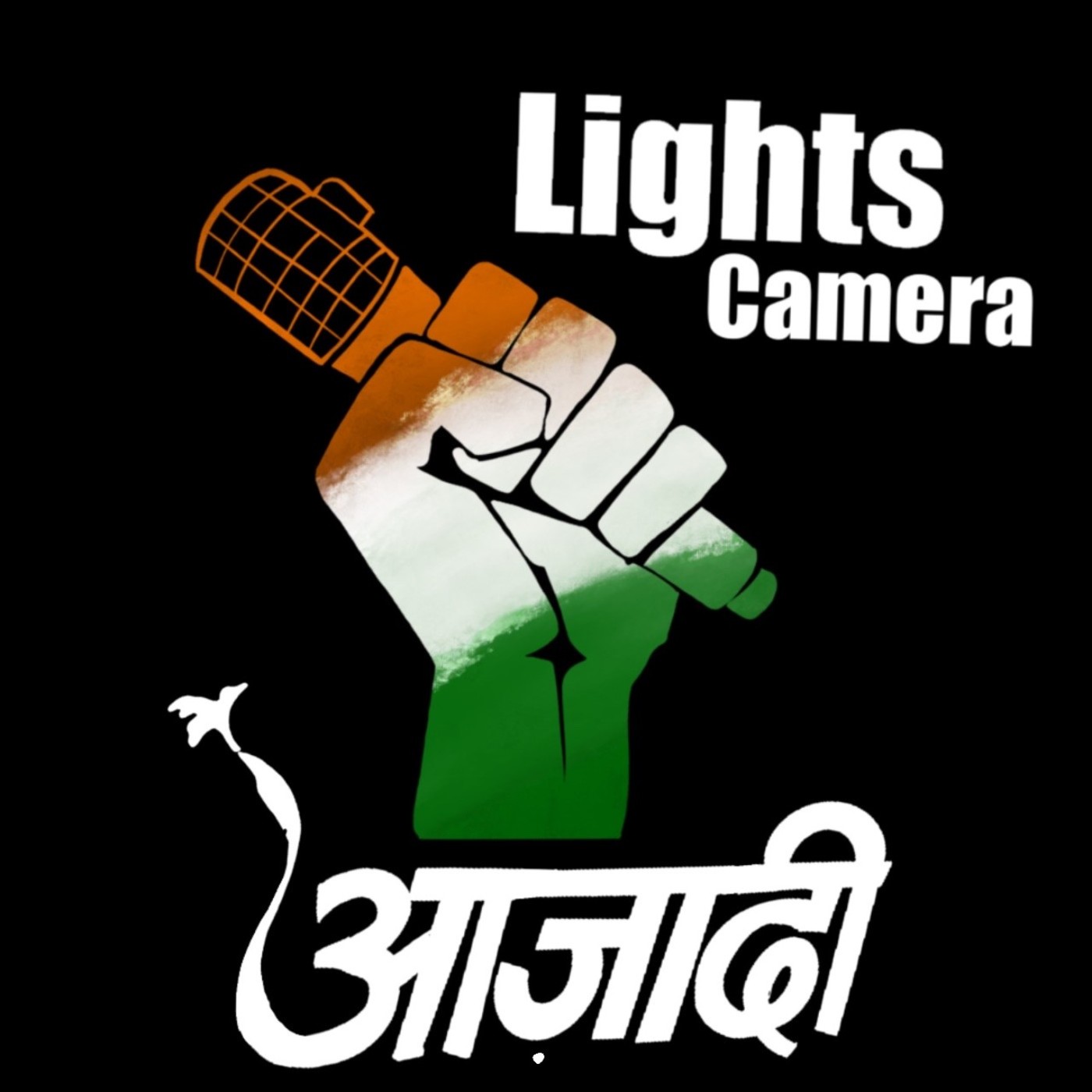
Visit LCA Website: https://lightscameraazadi.in/
Follow Nikita: https://twitter.com/glorious_gluten
Follow Disha: https://twitter.com/WadekarDisha
Follow CPA Project: https://twitter.com/CPAProjectIndia
People and accounts you can follow : Christina Dhanraj, Kiruba Munuswamy, Asha Kowtal, Dalit women fight and the Blue Dawn
Nikita Sonavane graduated with a B.A. (Political Science) degree from St. Xavier’s College, Mumbai and an LL.B. degree from Government Law College, Mumbai. She holds an LL.M in Law and Development degree from Azim Premji University (APU), Bangalore. She has worked as a legal researcher and an advocate for three years. She is the co-founder of the Criminal Justice and Police Accountability Project (CPAProject) a Bhopal based litigation and research intervention focused on building accountability against criminalisation of marginalised communities by the Police and the criminal justice system and press for decarceration. She has previously worked as a Research Associate with the Centre for Social Justice (CSJ), Ahmedabad, on issues of local governance, forest rights, and gender in the Adivasi region of Dang in Gujarat.
Disha is a lawyer practicing at the Supreme Court of India. She has worked as an Legal Associate at the Chambers of Sr. Adv. Indira Jaising where she worked on constitutional matters including the Sabarimala case, Jarnail Singh – Reservation in promotion case and the constitutional challenge to Citizenship Amendment Act.
Disha headed a legal resource center set up under a project by London School of Economics. Her work involved representation in cases of custodial death and torture, atrocities against SC/STs, deaths due to manual scavenging. Disha was also the youngest lawyer representing victims before the Bhima Koregaon Judicial Inquiry Commission, set up to look into the caste violence witnessed in Maharashtra in 2018.
1.Disha’s Dissent
2.Disha’s story of coming from a Denotified tribe
3.Criminal’s tribes Act
4.Disha’s life story
5.Shubhash Kashinath Mahajan
6.Nikita’s life story
7.Nikita analysis of the criminal justice system
8.Forest rights act
9.A quick history of the caste system
10.Is justice different from Brahmins and for Dalits, Adivasi?
11.Colonial system after the colonial masters
12.Epidemic diseases act
13.Casteism in the justice system
14.Isabell Wilkerson
15.How did caste enter the British system of Governance?
16.Internal Justice systems of various tribes.
17.Provisions of Pachayat extension to Scheduled area act (PESA)
18.Constitution Schedule 5
19.How did constitution tried to safeguard the rights of the marginalized communities and the realities of the same?
20.Criminalising approach of the Adivasi community?
21.Politics of documentation
22.Kherlanji atrocities case
23.Ankush Maruti Shinde
24.Juvenile justice act
25.Presumption of innocence
26.Bhawri Devi
27.Vishakha Guidelines
28.Hyderabad rape case
29.Indramil bai Bhopal 2017
30.Criticism of Me-too movement
31.Khuman Singh
1.दिशा की जीवन कहानी
2.शुभाष काशीनाथ महाजन
3.निकिता की जीवन कहानी
4.आपराधिक न्याय प्रणाली का निकिता विश्लेषण
5.वन अधिकार अधिनियम
6.जाति व्यवस्था का एक त्वरित इतिहास
7.क्या न्याय ब्राह्मणों और दलितों, आदिवासियों से अलग है?
8.औपनिवेशिक स्वामी के बाद औपनिवेशिक प्रणाली
9.महामारी रोग अधिनियम
10.न्याय प्रणाली में जातिवाद
11.इसाबेल विल्करसन
12.ब्रिटिश शासन प्रणाली में जाति का प्रवेश कैसे हुआ?
13.विभिन्न जनजातियों की आंतरिक न्याय प्रणाली।
14.अनुसूचित क्षेत्र अधिनियम (पेसा) को पचायत विस्तार के प्रावधान
15.संविधान अनुसूची 5
16.संविधान ने हाशिए के समुदायों के अधिकारों और उसी की वास्तविकताओं की रक्षा करने की कोशिश कैसे की?
17.आदिवासी समुदाय का आपराधिक दृष्टिकोण?
18.प्रलेखन की राजनीति
19.खेरलानजी पर अत्याचार का मामला
20.अंकुश मारुति शिंदे
21.किशोर न्याय अधिनियम
22.मासूमियत का अनुमान
23.भवरी देवी
24.विशाखा दिशानिर्देश
25.हैदराबाद बलात्कार का मामला
26.इंद्रमिल बाई भोपाल 2017
27.Me too आंदोलन की आलोचना
28.खुमान सिंह

Important issue
Thankyou nikita